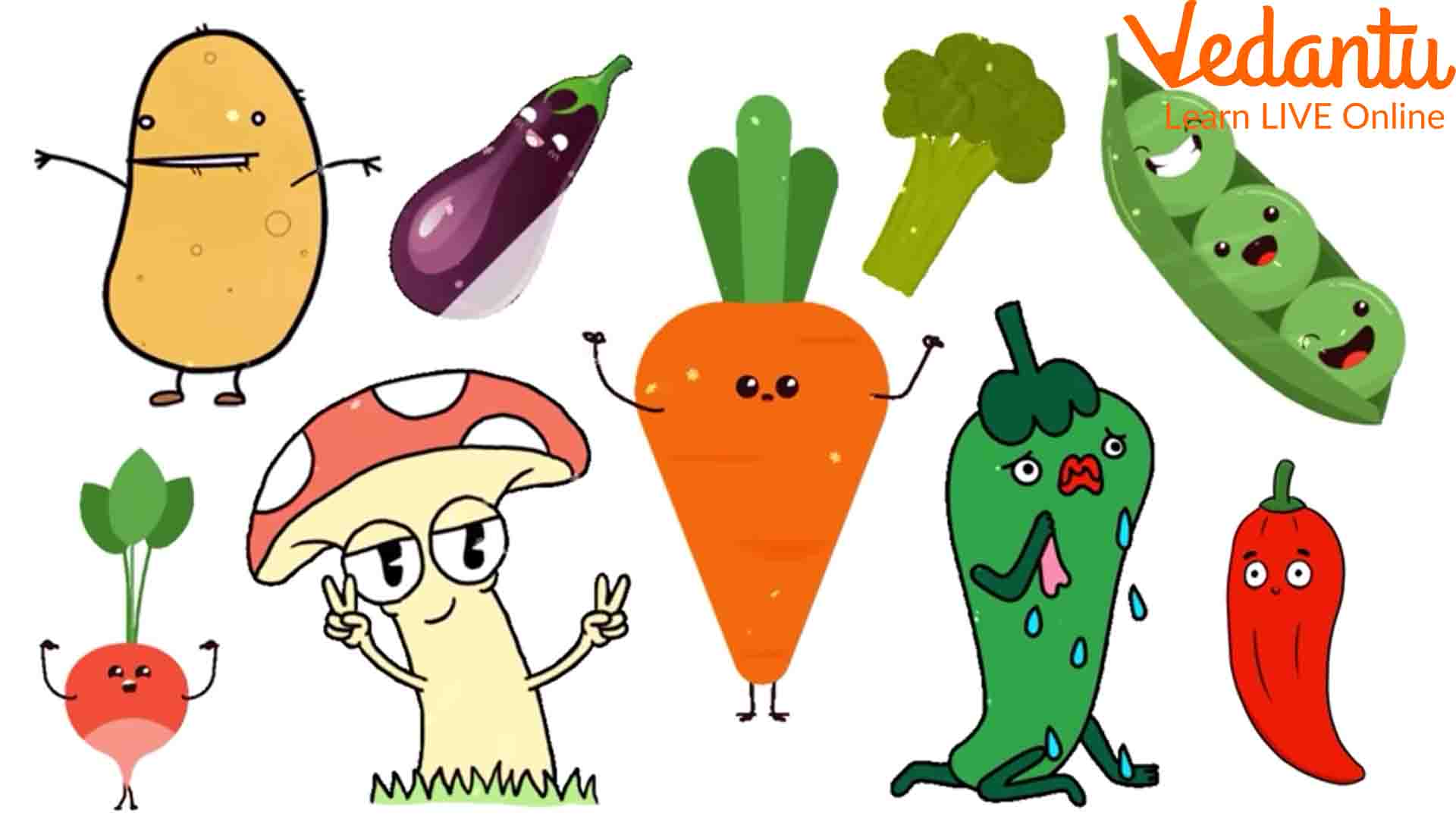Benefits of Vegetables List and Their Names for a Better Life
Introduction
Vegetables are part and parcel of our daily diet. There is actually no need for supplements for a normal person when one enjoys eating healthy vegetables. Vegetables are the natural source of nutrition we need in our daily lives.
Apart from the other sources, vegetables have exceptional food values. They are the prime sources of vitamins, minerals, fibre, proteins, carbohydrates, and fats we need to survive. The balanced addition of vegetables to your daily diet chart can ward off many nutritional disorders.
What is a Vegetable?
A vegetable is the edible part of a plant we consume raw or cooked. Over the years, we have found different types of vegetables growing naturally or developed with selective breeding. A vegetable can be the leaves, fruits, roots, tuber, stalks, and flowers of a certain plant consumed as food. We are taught the benefits of vegetables drawing with names at school.

Best Vegetables to Add to Your Diet
Vegetables: The Simplest and Best Way of Health Improvement
The development of nutritional science across ages shows how vegetables are important for our diet. They deliver the right amount of protein, carbohydrate, fat, and fibre to our diet and keep our physiological system healthy.
They also offer a high amount of vitamins and minerals to our diet. These active ingredients are very important to maintain various physiological functions of our organs and tissues. In a nutshell, the importance of vegetables can be explained when we understand their nutritional benefits. Let us take a quick look at the top 10 vegetables’ names and their contribution to our daily diet.
10 Different Types of Vegetables and Their Importance
1. Spinach
Popeye the sailor was right. Eating spinach can make you stronger and sharper to a considerable extent. This green leafy vegetable is a brilliant source of vitamins, iron, calcium, and antioxidants. You will be surprised to know that a cup of raw spinach can add dietary ingredients like Vitamin K, A, C, Folate, Magnesium, Iron, Calcium, Antioxidants, etc. This vegetable builds your bones stronger, enhances neurological functions, and manages blood pressure.
2. Kale
Kale is an excellent vegetable offering Vitamin A, K, and C. It also reduces bad cholesterol in our blood and increases the level of good cholesterol. Consuming kale juice can lead to a better circulatory system. It can be consumed in salads, juice, sandwiches, etc.
3. Broccoli
It belongs to the cruciferous family where cabbage, cauliflower, and kale belong. This winter vegetable’s name is quite common across the world. It offers Vitamin K, C, and a lot of fibre to your food. It is also known for its anti-inflammatory and antioxidant effects. It protects your cells from DNA damage and reduces the level of free radicals in your tissues.
4. Peas
Peas are the favourite of many. These green tasty seeds can be consumed in soups, curries, and even raw. Peas are great sources of vitamin A, K, and C and certain Vitamin Bs. They also add dietary fibre to your meals giving your digestive system the right boost.
5. Sweet Potatoes
Sweet potatoes can deliver more than an adult’s requirement of Vitamin A daily. It also adds Vitamin C and Vitamin B6. Apart from the vitamins, sweet potatoes on the list vegetables offer potassium and beta-carotene to fight cancer.
6. Beets
Beets can beat any vegetable when it comes to dietary potassium and folate. It enables our body to control blood pressure when consumed with boiled vegetables. Drinking its juice can significantly reduce the levels of free radicals with its antioxidant effect. It is also known for its excellent curing effect on diabetic neuropathy.
7. Carrots
Carrots are the prime vegetable source of Vitamin A. A serving of a cup of chopped carrots can deliver more than 4 times the daily requirement of Vitamin A for an adult. It is also packed with beta carotene. Carrots have many genres of antioxidants. Its regular consumption can help you to fight against cancer and maintain the efficiency of your vision. Hence, it leads the list of Vitamin A vegetables.
8. Tomatoes
Tomatoes are a good source of Vitamin C and lycopene. Lycopene is known for its antioxidant properties. Research says that this compound is capable of fighting prostate cancer. It also prevents the development of macular degeneration from occurring due to age. Consuming tomatoes, raw or cooked, can add dietary benefits that help us to ward off free radicals from our tissues.
9. Garlic
Garlic is considered a natural antibiotic. Its juice can cure itching, and topical infection and can even neutralise insect stings. Allium present in garlic cloves has excellent health benefits. Consuming raw or cooked garlic on a daily basis can also lower your cholesterol levels.
10. Onions
Onions are the prime ingredient in our daily food preparations. Without it, a kitchen seems incomplete. It can be eaten raw, fried, or cooked as it enhances the taste of many dishes we prepare. It adds Vitamin C, Manganese, Vitamin B6, and sulphur-based compounds. It also adds allium to our daily diet. Researchers have found that allium and sulphur compounds reduce the formation of cancer cells in our tissues.
How Can You Use the Benefits of Vegetables List?
This list of vegetables will help you maintain a balanced diet. You can add all the necessary nutrients you need to maintain your physical and mental health. This list shows how we have developed our food habits through the ages. Most vegetables are developed using selective breeding and cultivation.
As we can see, vegetables are primary food sources of many crucial nutrients we should consume daily. Make sure you have this list of important vegetables with you when you cook food.







